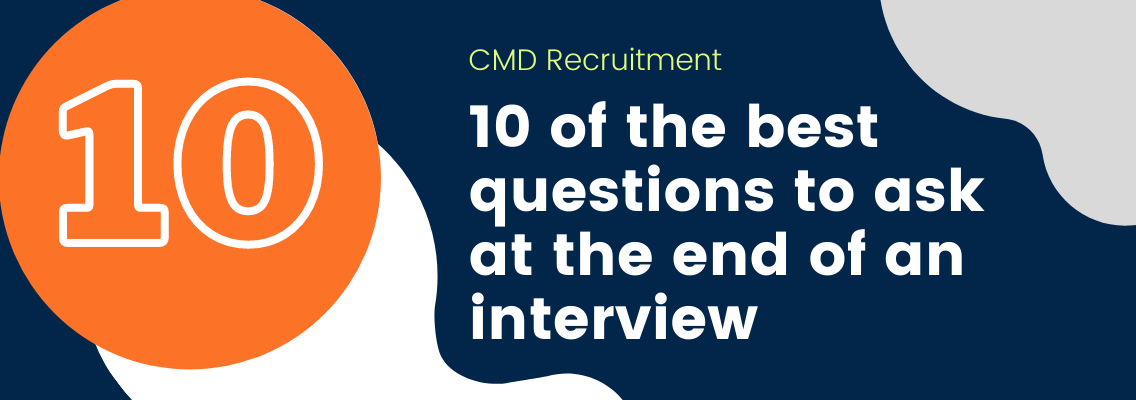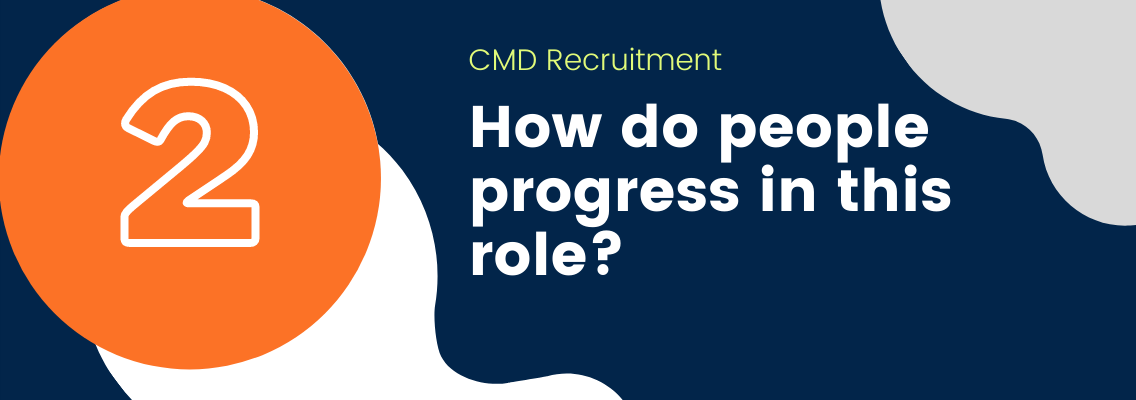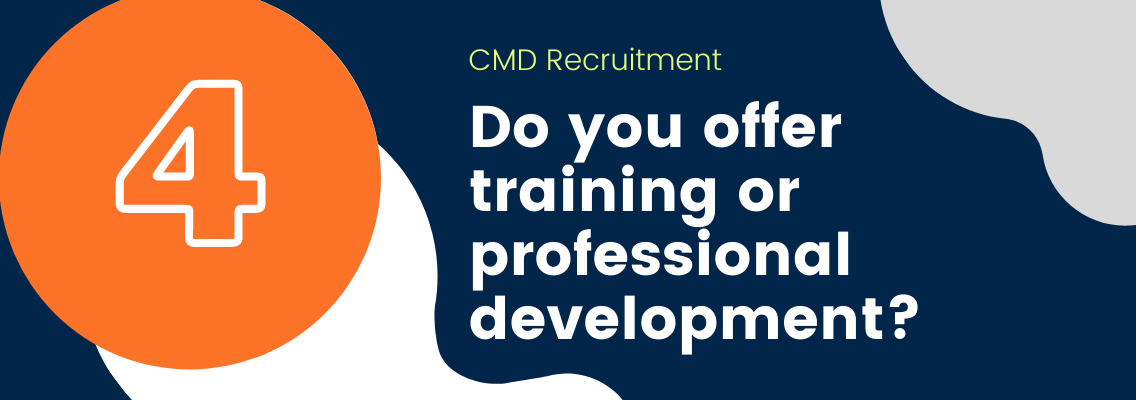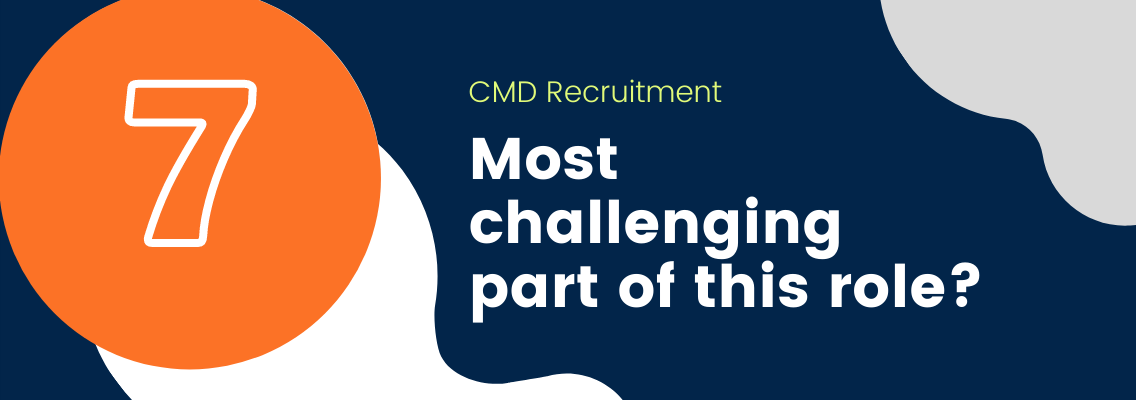Important notice - We are aware of a scam where people are impersonating CMD Recruitment to offer jobs via WhatsApp & Telegram. This is a scam, CMD Recruitment will never contact new candidates via these methods. Any legitmate offer from CMD Recruitment would be made via a telephone call.

September 18, 2021
You’ve reached the end of the interview. You can finally breathe a sigh of relief. Until the interviewer turns the tables on you.
“Do you have any questions for us?”
Common interview advice says that you should never let this opportunity slip away. But if you feel like the interviewer has already covered everything you wanted to ask, what can you possibly say?
The truth is there is always something else you can ask, and there’s nothing wrong with doubling back on a question from earlier in the interview. Below are a few example questions you could consider asking. Make sure you have a few questions prepared, so you aren’t caught out if they answer the question during the interview.

The first thing to remember when you ask any question is that the interview is a two-way conversation. When you ask this question, you are really asking for a realistic representation of the role. Because job descriptions rarely offer the full picture.
This will help you to get a better understanding of the day-to-day tasks so you can decide if the role is right for you. If they offer you the job further down the line, you’ll have a better understanding of what to expect and won’t be blindsided on the first day of your new job.

When you ask this, you’re telling the interviewer that you are ambitious. This is the dream job now, but in a few years, you’re going to want to know where you’re going next. Do people stay with the company, or do they move on? If they move on, this could suggest that there aren’t many opportunities to progress in the role. This isn’t always a bad thing, but if you are hoping to stay with the same company for a while, you might want to reconsider the role.

This is a great question to ask if you are curious about the company’s values. Employers often talk about a culture fit, and this should be just as important to the employee. So dig deep and find out what the office is like. Is it sociable or more professional? Do they offer flexi-time? Are there any other benefits on offer? This can be an opportunity to learn more about the company as a whole, outside of this specific job role.

If you are interested in growing your career with a company, you might also be interested in learning new skills. And there might be additional skills you think you need to be able to do the job correctly. Ask about investment in employees and let the interviewer know that you are serious about your career.

When you ask this question, you let the employer know that you care about your professional performance and success. It also lets you know if this is a very strict company with clearly defined targets and KPIs or if the company is more relaxed about their employee’s performance.
Some people are target driven and will thrive in an environment where they have monthly and even weekly targets. In contrast, others will prefer to work in an environment where they are subject to less strict appraisals.

This can catch interviewers off guard and might tell you a lot about the company. It’s another way of asking about the working conditions without actually asking about the working conditions. You might learn about the company culture, the management structure or the added perks.

This question tells the interviewer that you aren’t afraid of a challenge but that you like to be prepared. It will also give you an idea of where they think your weaknesses lie. Listen carefully to their answers as it will reveal a lot.
It might also reveal parts of the job description that haven’t been mentioned before. For example, you might learn that client liaison is part of your role or that you’ll be expected to work weekends during peak times.

If this question came up in your interview, it’s a great opportunity to turn the tables. When you ask this, you’re asking about the health of the company and how it might grow and change. If you’re being hired following investment and growth, the company might change a lot in the next five years. A company that is ticking along isn’t necessarily a bad thing, particularly if you’re looking for stability.

Curious to know the management and support structure in the role? This question should help to reveal that. When you ask this question, you let the interviewer know that you are considering the wider implications of the role. You’re thinking beyond your own contribution and considering how you might collaborate with others. You will also get an idea of the scale of the company and the department you’ll be working for.

If everything else is covered in the interview, you will at least have this question. By asking this question, it lets the interviewer know that you are keen and still interested. If you don’t ask this question, you might leave them wondering if you even care about the role. This will tell you important information about how many people you’re up against, how long you can expect to wait to hear, and how quickly they are looking for someone to start.
You don’t have to ask a lot of questions at the end of the interview, but it’s worth preparing a few, so that appear interested and engaged. If you have prepared a question and the answer is partially covered in the interview, there’s nothing wrong with circling back to the subject.
Back to Blog